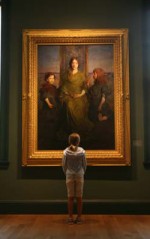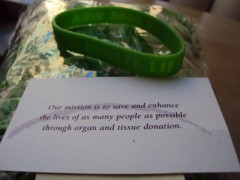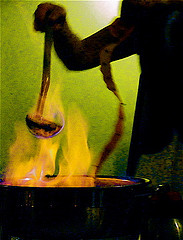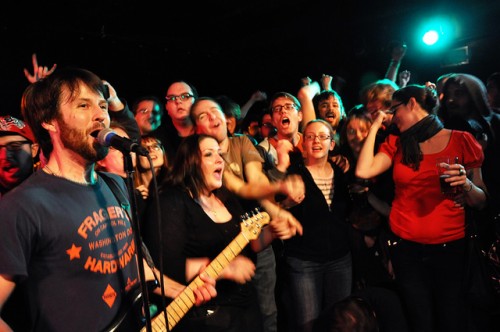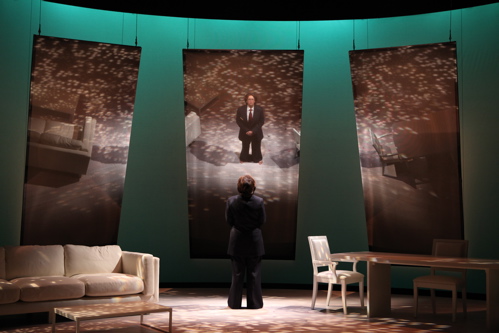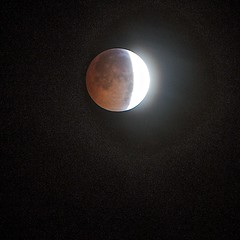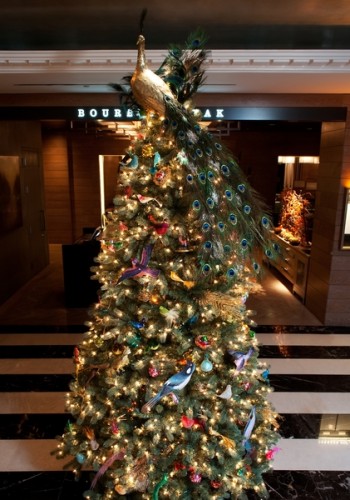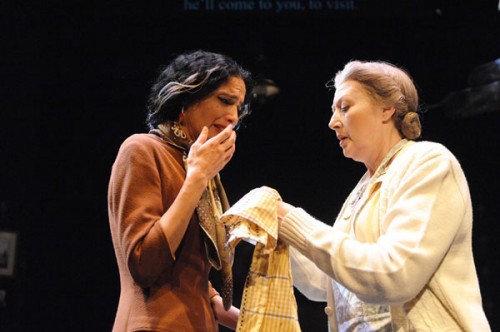
Raida Adon and Rozina Kambos in The Cameri Theatre of Tel Aviv's "Return to Haifa" at Theater J. Photo credit: Stan Barouh.
Two women are arguing about their son. One gave birth to him, the other raised him. The adoptive mother makes a cutting comment about the son being more likely to listen to her than his birth mother. Many in the audience laugh. It’s a grim laugh, low and knowing.
A women next to me says out loud in frustration and disbelief, “Why is that funny?”
It was a strange preview night at Theater J, watching the production of Return to Haifa performed by the Cameri Theatre of Tel Aviv in Hebrew and Arabic. Uncomfortable for some, painful for others, odd for me in my role as critic – as the talkback session afterwards becomes a bit of theater unto itself, worth investigating just as much as reviewing the play. I didn’t know what to make of the whole thing when I left. I still don’t.
Two mothers. One Jewish, one Muslim. One Israeli, one Palestinian. And their son, all of the above, or none of any of it. Questions arose at the talkback with Anton Goodman, Jewish Agency Shaliach, and Ari Roth, artistic director of Theater J, that still whirl in my head: Is it a play appropriating a beloved piece of Palestinian literature, as one member of the talkback accused? Is it a play attempting to own a dual narrative, to both celebrate and mourn at the same time, as Goodman believed? A play that makes soldiers unable to be strong for their country, as a mother in the audience feared?
What I can tell you about Return to Haifa… is that you will leave with many questions. Continue reading →

